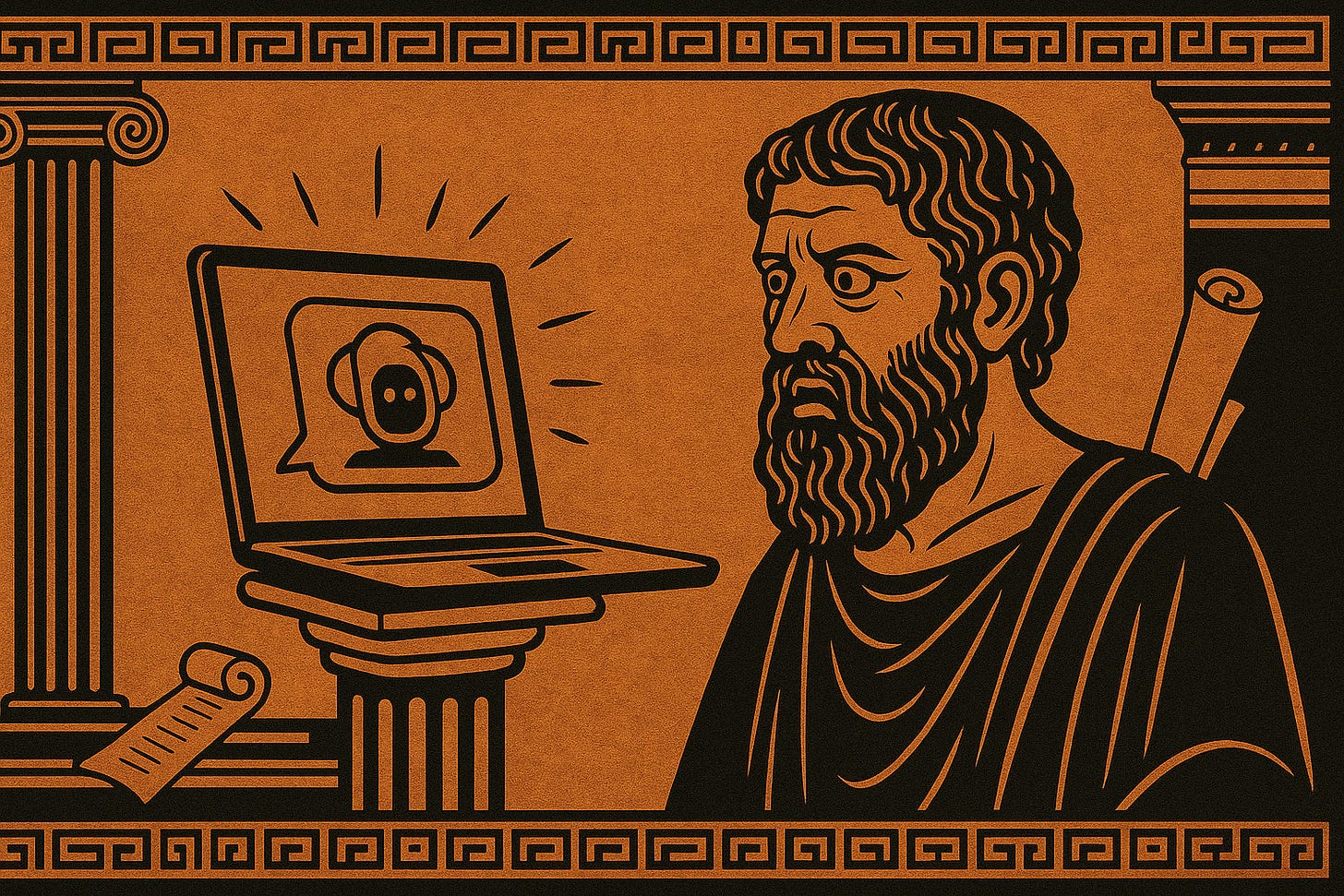Plato, Typewriters, and ChatGPT: Why Writers Always Fear the Next Tool
“This will ruin everything.”
Every time a new writing tool comes along, someone hits the panic button. We heard it with spell check. We heard it with the typewriter. And now, we’re hearing it again with AI.
But the truth is, writers have always feared the next thing.
In Plato’s Phaedrus, Socrates tells a story about the Egyptian god Theuth, who invented writing. Theuth presents it to King Thamus, calling it a gift to improve memory and wisdom. But Thamus isn’t buying it. He warns that writing will cause forgetfulness, that people will rely on texts instead of training their minds. They’ll appear wise, without truly understanding anything.
If that sounds familiar, it should. It's the same argument we hear today about AI tools: that they give the illusion of creativity or insight, without the hard work behind it.
And yet… we’re reading this critique because Plato wrote it down.
From that paradox forward, every major writing shift has stirred up resistance:
The printing press was feared for spreading “unauthorized” ideas too quickly.
The typewriter was criticized for being mechanical and impersonal—some said it would “industrialize” literature.
Spell check and grammar tools were accused of making us lazy, replacing instinct with automation.
Now AI tools—like ChatGPT—are being framed as either a crutch or a threat to authentic voice.
But here’s the thing: none of those earlier fears stopped writers. If anything, those technologies widened the circle. They didn’t replace creativity; they freed up the mental bandwidth for it.
As someone who has spent decades crafting words by hand, by keyboard, and now occasionally with an AI assistant, I don’t see this as the end of writing. I see it as another chapter—one that asks us to adapt, experiment, and figure out where these tools fit into our process.
The question isn’t, “Will AI ruin writing?” The better question is, “What can we do with this that we couldn’t do before?” Another good question is “How do we teach writing in the AI age?”
In my upcoming book AI Prompting Field Guide for Writers, I talk about not relying on “generative AI” but, rather, “assistive AI” where the AI helps you to realize your creative vision or your non-fiction writing goals. It doesn’t just do it all for you.
Think about math education. Everyone “knew” calculators would destroy math abilities in students. But education adapted. At higher levels, now, there is less emphasis on knowing how to use a log table or compute a cube root by hand. There’s more emphasis on ideas and principles.
But there’s an important caveat: You can’t introduce the calculator too early! You still need to do basic addition, subtraction, multiplication, and division. I suspect writing will be a bit like that, too. You have to get a certain feel for grammar, plot, and characterization before the AI can help you achieve things you couldn’t do before.
Look for AI Prompting Field Guide for Writers soon on Amazon and subscribe to get some samples from it here. Plus there will be more Field Guides coming. Stay tuned.


